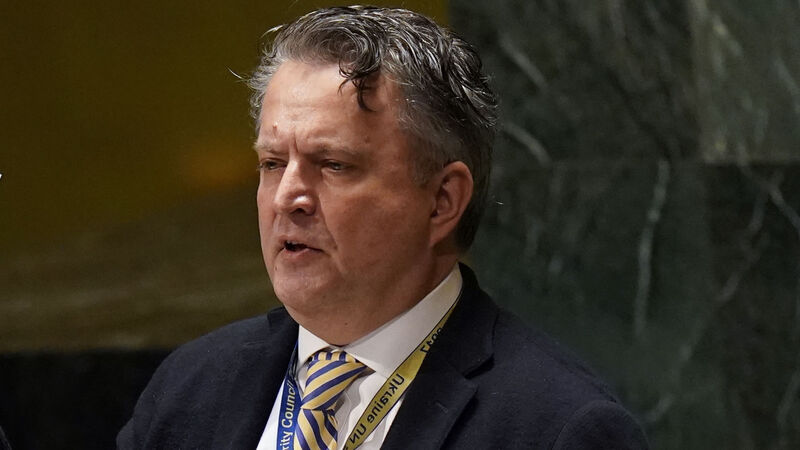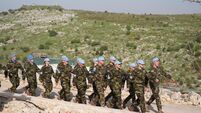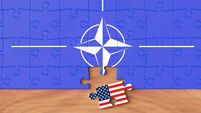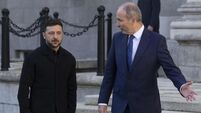Neutrality a 'thing of the past' given threat from Russia, says Ukrainian minister

Ukraine's first deputy minister for foreign affairs Sergiy Kyslytsya was speaking at the European Commission’s offices in Dublin on Wednesday. File picture: Seth Wenig/AP
Russia doesn’t need to put boots on the ground to invade a country and can “paralyse” it by a cyber or drone attack, a senior Ukrainian minister has told policy experts and foreign dignitaries in Ireland.
Sergiy Kyslytsya, Ukraine's first deputy minister for foreign affairs, also said while he would not tell Ireland what security policy to have that, in his view, neutrality was “a thing of the past”.













